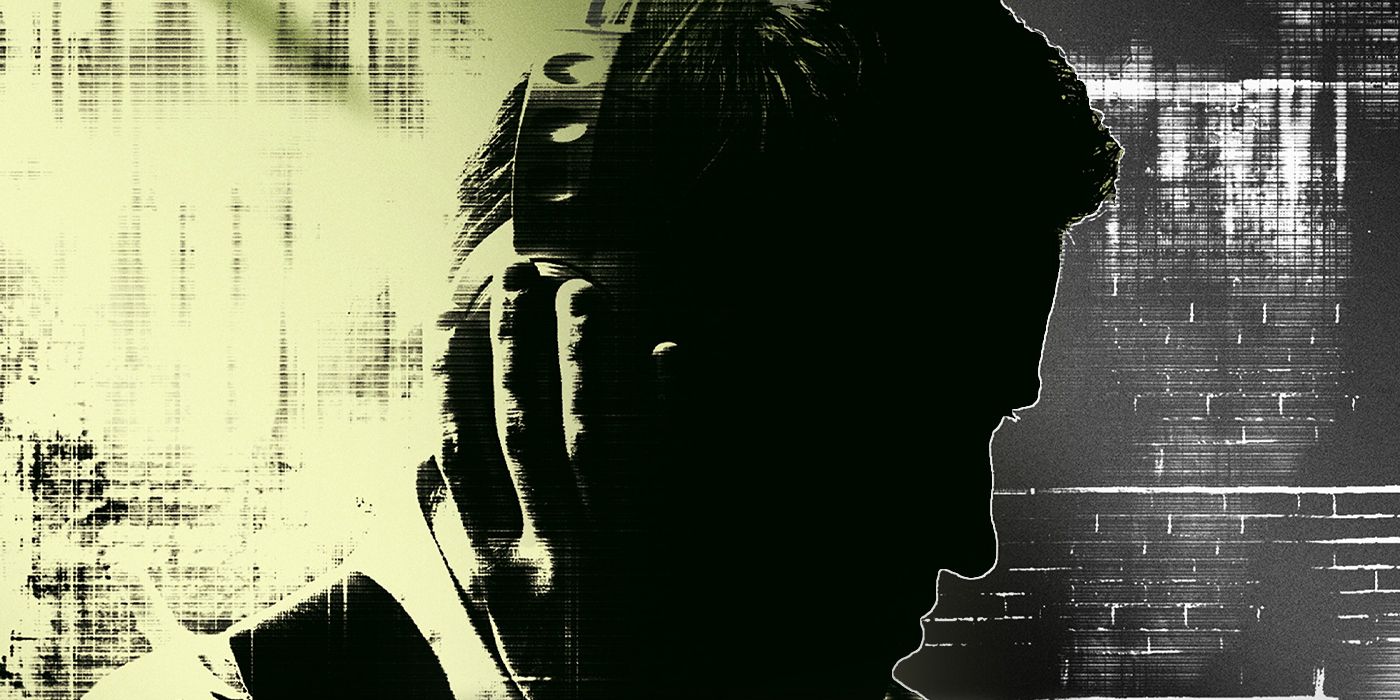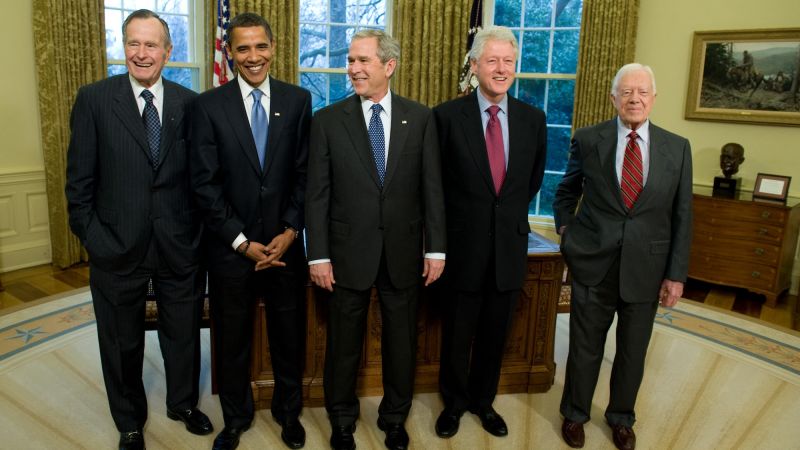The Wire Season 2 hits a home run off the bat, exploring economic inequalities, political corruption, and human trafficking. Most importantly, this season introduces audiences to the Sobotka Clan, led by waterfront union officer Frank and his kin. In that first hour, this sophomore season creates a real sense of community, as well as unpacking an intense rivalry between Frank and Major Valchek. What follows is a densely plotted, character-driven second season that matches its predecessor, digging a little deeper into Baltimore’s underbelly. It’s here that audiences and characters see how and why unionist Frank does all the wrong things for all the right reasons.
Lieutenant Cedric Daniels and his squad only get involved when 14 women are found dead on the quayside. It’s here the cops find a disturbing sight: the women’s fingernails broken from clawing the shipping container’s interior, and their bodies packed in like sardines with only a single hole for air. Their fate may be tragic, but out on the water as part of a harbor patrol, Detective Jimmy McNulty is more interested in upsetting Commissioner Rawls as retaliation for his demotion. Unfortunately for him, another Jane Doe floating past his boat gives him the opportunity to join the investigation. However, The Wire Season 2 keeps its classic status among television dramas for reasons that go beyond petty rivalries, missing manifests, and grim acts of criminality.
The Wire Season 2 Shows the Dark Side of Family & Blood Ties
The Season Makes Good Use of Old and New Characters
Nick Sobotka is one of Season 2’s key players, played with an earnest intensity by a young Pablo Schreiber. Known to contemporary audiences as the live-action Master Chief from Halo on Paramount+, Nicky is where he made his mark. He did so by giving this Baltimore native some real backbone over the course of 12 episodes, trying to break away from his Uncle Frank. However, his plans always go sideways due to Ziggy, Frank’s insecure and insipid son who is undermined by everyone. That need to impress and prove his worth is a cry for help from Ziggy that goes unanswered until he finally pulls a gun. As straightforward as these plot threads might sound, what makes The Wire Season 2 special is how this all comes together on-screen.
Just as Michael B. Jordan’s Wallace was key to The Wire Season 1, especially when it came to making audiences watch his potential wither and die, Ziggy fulfills a similar function in this season. Starting out cocky and arrogant with a point to prove, Ziggy makes some bad decisions fueled by petty jealousy, thus making redemption for him impossible. These interconnected and intricate story arcs are no accident pulled together at random by clueless showrunners but crafted by creatives with a proven track record. Blood ties between D’Angelo and Avon Barksdale, even in prison, never feel forced or convenient. Although these characters play a minor role this time round, Avon’s influence comes through most strongly in Stringer Bell. The latter acts as Avon’s eyes and ears on the outside, keeping things in order and reminding people still peddling their product that nothing has changed despite his boss’ current imprisonment. Pulling in recurring cameos from last season like Proposition Joe add depth to this world, making even the side characters key players in this brutal game.
D’Angelo: The past is always with us. Where we come from, what we go through, how we go through it, all this matters.

Related
10 Best Episodes of The Wire, Ranked
Thanks to its writing, cast, and raw portrayal of the effects drug wars have on communities, The Wire quickly became one of HBO’s greatest series.
However, Michael K. Williams continues to make the most noise in The Wire through his supporting role as Omar, either as a key witness for the prosecution in one breath or unloading some gangland retribution shotgun-style with the next. Omar’s best scenes are the times he comes up against the ultimate intellectual hitman, Brother Mouzone. Fresh from New York City and trading on false information, they have a meeting of minds over bullet wounds that will mean trouble for someone later. They forge an understanding that is instant and grounded in respect, honor, and loyalty. In a weird way, their alliance proves that karma has a way of coming back around to make amends for all wrongdoings. The difference between The Wire and almost every other show that comes close to matching it is these supposedly minor characters’ unforgettable and pivotal moments.
These interactions are often about family. Though the most important things usually go unsaid in these scenes, they are played out to perfection by everyone involved. In each case, these dramatic moments between major and minor players are treated with care and always feel earned. From D’Angelo’s death to Ziggy’s surrender, these moments hit hard because they lack polish, feel raw, and go for broke. This is a feeling that also comes through in the season’s approach to social commentary, which really goes for the throat. Rich with heartfelt humanity, there is a sense of melancholy in the way both these men are ground down by generational pressures and a visceral gun culture.
The Season’s Take On Immigration Will Cause Controversy
In it second season, there is finally a series formula in The Wire that audiences can recognize. Starting with Season 2, every new overarching story in The Wire begins with an indiscriminate crime set in a central location that allows new characters to be introduced, and for old ones to return. In Season 2’s case, political rivalries over a rectory window escalate and uncover a smuggling ring, destroying families and threatening livelihoods in the process. However, both parties feel completely justified in behaving badly. This is a recurring duality not just in this season, but in the rest of The Wire. Frank is battling against a failing infrastructure and limited government funding by trying to subsidize union members through illegal means. He does so by paying off political officials, buying votes, and keeping himself in power to stop anyone from finding out. Meanwhile, Major Valchek uses the power of his position to influence the acting Commissioner Ervin H Burrell to get his revenge.
Following that logic, The Wire Season 2 could be viewed as an exploration of corruption and the petty grudges among people in positions of power. This season is a crime drama that takes a less-than-subtle swing at those in political office, shining a light on those without a voice to protest. A more unpopular way of looking at the season is to view it as a comment on immigration in America, which is currently under intense scrutiny. Since Paul Ben-Victor plays a Greek smuggler who might just be of Russian origin, The Wire‘s writers pull no punches when it comes to passing comment on people from different countries entering the country. In the world of The Wire, these immigrants essentially live outside the law, smuggling women over in containers for profit and then getting away without a trace. They take advantage of honest Americans with a high-risk return, slowly stripping Frank of his integrity and sense of self. For Frank Sobotka, these unscrupulous figures offer a way out, that will see him hailed as a savior by his dockyard colleagues. They sucker him into thinking a collaboration with them will strengthen his reputation, but these costly miscalculations soon tarnish his name and those of his relatives. He’s suckered into thinking a collaboration with these traffickers would strengthen his reputation. Frank’s delusions quickly become very costly miscalculations, tarnishing his name and those of his relatives.
Frank: In this country we used to make stuff, now we just put our hand in the next guy’s pocket.

Related
HBO Gave Fans One of the Most Accurate Crime Dramas of All Time
Police procedurals are a staple in many households, but few are more honest about the dark side of police work than HBO’s The Wire
Depending on the politics of those watching, The Wire Season 2 could be read as an astute but blunt observation of immigration or a savage slice of social commentary against it. It’s unapologetic in the way it highlights grassroots crime existing hand in hand with honest people trying to earn a living. The immigrants prominently shown in this season take advantage of less-than-legal opportunities to make ends meet, especially within the shipping industry that has sustained generations of Americans but is slowly dying an undignified death. Meanwhile, the American characters are pushed to extremes by circumstances beyond their control, and come up against criminal organizations who tempt them into turning a blind eye when human traffic turns up on the docks. It’s a testament to The Wire’s overall quality and strength that the actors do an amazing job in their assigned roles and the writing is as solid as always —even if the story onscreen can be controversial at best and offensive (or even downright racist and xenophobic) at worst. Either way, there is no escaping the fact that The Wire Season 2 tackles a contentious topic without sweetening the pill, making it timelier than it was all the way back in 2003.
The Wire Season 2’s Characters & Writing Make Its Politics Easier to Watch
The Season Is a Product of Its Time, for Better and Worse
Thankfully, these touchy elements are hidden in a sea of interconnecting subplots, balancing out The Wire Season 2 perfectly. As problematic as some of the show’s stances may be, Season 2 still works well enough as its own crime drama that its messaging can be glossed over. Season 2 also offers audiences a return to familiar ground with Stringer Bell, Bubbles, and Kima. Character-based humor between Daniels and his wife, McNulty or whoever he collides with during his self-destructive segues. All these arcs come together flawlessly to distract audiences from thinly veiled stances on immigration, political corruption, and social realism. To say that The Wire Season 2’s waterfront investigation and then-contemporary politics are complex is an understatement.
With an uneasy sense of resolution in its final moments, The Wire Season 2 pulls off yet another magic trick by convincing audiences they have a closure that never comes. In crime fiction, there must be repercussions for the characters who commit these illegal acts, and high-profile figures should suffer as well. However, The Wire takes it one step further by handing over the dockyard to federal officers and leaving workers with no livelihood. Making the in-fighting and one-upmanship of The Wire‘s central characters feel selfish and pathetic in hindsight. Turning The Wire Season 2 into a sad indictment of the American Dream, that hits hard even after more than 20 years.

Related
The Wire Season 2 Is Controversial, But Necessary Watching
HBO’s The Wire is considered one of the greatest TV shows ever, but Season 2 is divisive. However, it still holds up as a vital season.
This is why Homeland Security signs are seen going up at crucial moments in The Wire Season 2. America’s landscapes and attitudes towards subjects like immigration and crime were changing in the aftermath of the September 11, 2001 terror attacks, both in the world of The Wire and in the real world. The Wire may be fictional, but it did its best to capture the zeitgeist of its time. It’s because of this unflattering and vitriolic portrait of American life that some still consider The Wire, especially Season 2, so contentious after all this time. At a time when immigration has been turbo-charged into an inflammatory topic that’s only been exacerbated by the incoming president, The Wire Season 2 has never felt more relevant.
The Wire Season 2 is now available to watch and own physically and digitally.








